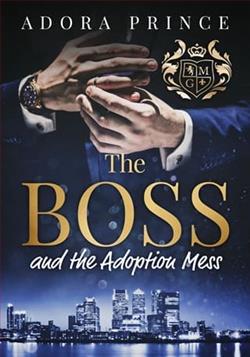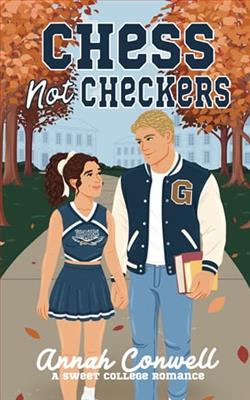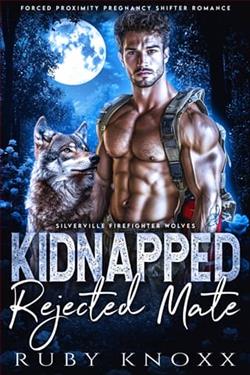Page 82 of The Veteran
The moon rose. The braves saw her coming towards them across the stone plain. She saw two campfires burning below the rim of the gulch where the pines grew and heard the low call of an owl from the fire to her left. She made her way there.
They said nothing. That would be for her father, Tall Elk. But they still had their orders. The wasichu who had violated their lodges must die. They waited for dawn.
At one in the morning great clouds swept over the Beartooth Range and the temperature began to drop. The men round both campfires shivered and wrapped themselves tighter in their blankets, but it was no use. Soon they were all awake, hurling more wood onto the fires, but still the temperature fell.
Both the Cheyenne and white men had wintered in the fierce Dakotas and knew what midwinter could do, but this was the last day of October. Too early. Yet the temperature fell. At two o’clock the snow began to fall like a white wall. In the camp of the cavalry the Crow scouts rose.
‘We would go,’ they said to the officer. He was in pain from his ankle but knew the bounty and the capture would transform his life in the army.
‘It is cold, but dawn will soon come,’ he told them.
‘This is no ordinary cold,’ they said. ‘This is the Cold of the Long Sleep. No robe is proof against it. The wasichu you seek is already dead. Or he will die before the sun.’
‘Then leave,’ said the officer. There was no more tracking to be done. His quarry was on the mountain he had seen shimmering in the moonlight before the snow came.
The Crow mounted up and left, heading back across the Silver Run Plateau and down the slopes to the valley. As they left, one gave the harsh call of a night bird.
The Cheyenne heard it and looked at each other. It was a warning cry. They too mounted up, threw snow on the fire and left, taking the girl with them. And still the temperature fell.
It was about four in the morning when the avalanche came. It fell from the mountains and moved a thick blanket of snow across the plateau. The advancing wall hissed as it slid towards Lake Fork, and when it fell into the ravine it took all before it. The remaining men and horses could not move; the cold had pinned them where they lay and stood. And the snow filled the creek until only the tops of the pines showed.
In the morning the clouds cleared and the sun returned. The landscape was a uniform white. In a million holes the animals of the mountain and forest knew that winter had come, and they should hibernate until the spring.
In his high cave, rolled in his buffalo robe, the frontiersman slept.
When he awoke he could not, as sometimes happens, recall where he was. In the village of Tall Elk? But he heard no sounds of the squaws preparing the morning meal. He opened his eyes and peered out from the folds of the buffalo fur. He took in the rough walls of the cave and the memories came back in a rush. He sat up and tried to clear his head of the last mists of sleep.
Outside he could see a white shelf of rock dusted with snow and it glittered in the sun. He emerged bare-chested and sucked in the morning air. It felt good.
Rosebud, still hobbled at the forelegs as he had left her, had come out of the cave and was nibbling at some young pine shoots at the edge of the shelf. The morning sun was to his right hand; he was staring north towards the distant plains of Montana.
He walked to the forward edge of the shelf, dropped to the ground and peered down towards Hellroaring Plateau. There were no signs of woodsmoke coming from Lake Fork. His pursuers seemed to have gone.
He returned to the cave, dressed in his buckskin suit and belt. Taking his bowie knife he went back to Rosebud and freed her front legs. She whinnied softly and nuzzled his shoulder with her velvet muzzle. Then he noticed something strange.
The soft green shoots upon which she fed were those of spring. He looked around. The last few hardy pines which survived this high were each pushing out pale green buds towards the sun. With a start of shock he realized that, like a creature of the wild, he must have hibernated through the bitter cold of winter.
He had heard it could be done. Old Donaldson had once mentioned a trapper who overwintered in a bear cave and did not die, but slept like the cubs beside him until winter passed.
In his saddlebags he found a last portion of wind-dried meat. It was hard to chew but he forced it down. For moisture he took a handful of powder snow, crushed it between his palms till it was water, then licked his hands dry. He knew better than to eat raw snow.
The bags also contained his round trapper hat of warm fox fur, and he pulled this onto his head. When he had saddled Rosebud he checked his Sharps rifle and the twenty cartridges that remained to him, slipped it into its sheath and prepared to leave. Heavy though it was, he rolled the buffalo robe that had saved his life and lashed it behind the saddle. When there was nothing left in the cave he took Rosebud’s bridle and began to walk her down the track to the plateau.
He was not quite decided what to do, but he knew there would be plenty of game in the lower forests. With traps alone a man could live well down there.
He crossed the first plateau at a slow walk, waiting for a sign of movement or even a ranging shot from the edge of the crevasse. None came. When he reached the cleft there was no sign of his pursuers returning to continue the hunt for him. He could not know that the Crow had reported that all the bluecoat soldiers were lost in the blizzard and their quarry also must have died.
He found again the track down into Lake Fork and up the other side. The sun rose higher as he walked across the Silver Run until it was a full thirty degrees above the horizon. He began to feel warm.
He went down through the pine forests until the broadleaf trees began and there he made his first camp. It was noon. With springy twigs and a yard of twine from his saddlebag he made a rabbit snare. It took an hour until the first unsuspecting rodent came out of its hole. He killed and skinned it, used his small box of tinder and flint to make a fire and enjoyed the roasted meat.
He spent a week camping at the edge of the forest and recovering his strength. Fresh meat was plentiful, he could tickle trout from the numerous creeks and water was all he needed to drink.
By the end of the week he decided he would leave for the plains, travelling by moonlight, hiding up in the day, and return to the Pryors, where he could build a shack and make a home. Then he could ask where the Cheyenne had gone and wait for Whispering Wind to be free. He had no doubt it would happen, for so it had been spoken.
On the eighth night he saddled up and left the forest. By the stars he headed north. It was the time of the high moon and the land was bathed in pale white light. After walking through the first night he camped by day in a dry creek where no-one would see him. He lit no more fires and ate meat he had smoked in the forest.
On the next night he turned to the east, where the Pryors lay, and soon crossed a long strip of hard black rock that ran away on each side. Just before dawn he crossed another one, but after that no more. Then he entered the badlands, hard country to ride but easy to hide in.















